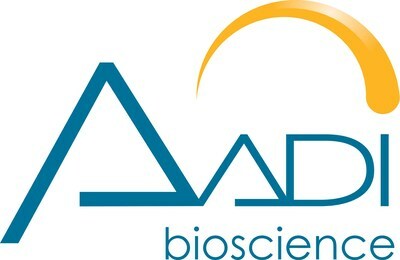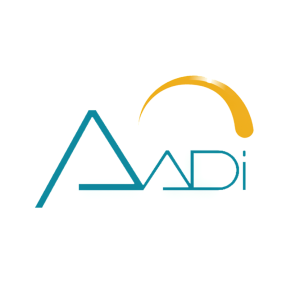Aadi Bioscience Presents New Nonclinical Data Demonstrating Preferential Tumor Uptake of nab-Sirolimus at the American Society of Clinical Oncology (ASCO) Annual Meeting
Aadi Bioscience presented new nonclinical data at the ASCO Annual Meeting showing that nab-sirolimus achieved higher intratumoral drug concentrations, stronger mTOR target inhibition, and greater antitumor activity compared to IV and oral mTOR inhibitors in a xenograft model. These findings support further clinical studies of nab-sirolimus, either alone or in combination therapies. The data will be published in the Journal of Clinical Oncology.
Aadi will also present a poster on a Phase 2 trial of nab-sirolimus plus letrozole in advanced or recurrent endometrioid-type endometrial cancer. This trial aims to evaluate the efficacy and safety of the combination, exploring its potential to offer additive anti-tumor activity for EEC patients.
Endometrial cancer is a significant focus due to its rising mortality rates, and Aadi's study aims to address the unmet needs in this difficult-to-treat cancer type.
- nab-Sirolimus showed significantly higher intratumoral drug concentration compared to IV and oral mTOR inhibitors.
- Stronger inhibition of mTOR targets was achieved with nab-Sirolimus.
- nab-Sirolimus demonstrated greater antitumor activity in a xenograft model.
- Results support further clinical evaluation of nab-Sirolimus as a single agent or in combination therapies.
- Aadi is exploring a Phase 2 trial in advanced or recurrent endometrioid-type endometrial cancer.
- Positive prior clinical results with mTOR inhibitors and letrozole in endometrial cancer.
- Current mTOR inhibitors temsirolimus, sirolimus, and everolimus have clinical applications in cancer treatment.
- Despite promising results, further clinical evaluation is needed, indicating uncertainty and risk.
Insights
The new nonclinical data presented by Aadi Bioscience showcasing nab-Sirolimus as a superior option to traditional mTOR inhibitors is noteworthy. The significantly higher intratumoral drug concentration observed with nab-sirolimus suggests better targeted delivery, which is critical in oncology treatments. Enhanced drug delivery often translates to improved efficacy, possibly leading to better patient outcomes. This data supports further clinical trials, which might eventually result in new treatment options for difficult-to-treat cancers.
Moreover, the targeting of the mTOR pathway, a central regulator of cell growth and survival, signifies a focused approach aiming at a well-known cancer pathway. The combination with nanoparticles (nab) likely contributes to improved solubility and stability, addressing some limitations of current therapies. However, it's important to remember that these are nonclinical (preclinical) results. The true efficacy and safety will only be validated through rigorous clinical trials.
From a research perspective, the demonstration that nab-Sirolimus achieved higher intratumoral concentrations and more effective mTOR inhibition than existing mTOR inhibitors in a xenograft model is significant. The data indicate that nab-sirolimus could potentially overcome the current limitations of mTOR inhibitors in oncology. High drug concentrations within tumors are often correlated with greater therapeutic effects, which aligns with the outcomes presented.
Additionally, the phase 2 trial involving nab-sirolimus and letrozole in advanced or recurrent endometrial cancer is particularly promising. Given that a large percentage of these cancers have alterations in the PI3K/AKT/mTOR pathway, targeting this pathway with a new, potentially more effective drug could be a game-changer for patients with these alterations. The fact that the study is multi-institutional and open-label could facilitate a robust set of data upon completion.
These announcements suggest a solid direction for future clinical exploration, yet they should be cautiously viewed within the context of ongoing research.
nab-Sirolimus demonstrated significantly greater intratumoral drug concentration, stronger inhibition of mTOR targets and greater antitumor activity compared to IV and oral mTOR inhibitors in a xenograft model
Data support further clinical exploration of nab-sirolimus as a single agent or in combination
"Our goal at Aadi is to unlock the full power of mTOR inhibition by combining nanoparticle albumin bound (nab) technology with sirolimus to improve delivery, stability, solubility and targeting," said Loretta Itri, MD, Chief Medical Officer at Aadi. "With superior findings across key markers, these important nonclinical data add to our growing body of evidence that nab-sirolimus may overcome limitations of previous therapies, including both orally and intravenously delivered mTOR inhibitors, with the potential to play an important therapeutic role in difficult-to-treat cancers."
Abstract details and highlights include:
Title: Antitumor activity of nab-sirolimus versus mTOR inhibitors temsirolimus, sirolimus, and everolimus in A549 NSCLC xenografts
Lead Author: Shihe Hou
Abstract: https://meetings.asco.org/abstracts-presentations/235617
- Despite the broad importance of the mTORC1 pathway in cancer cell growth and survival, mTOR inhibitors (mTORis) temsirolimus, sirolimus and everolimus have limited clinical application in the cancer setting.
- In A549 xenografts, nab-sirolimus resulted in significantly greater suppression of tumor growth compared with IV temsirolimus and oral sirolimus and everolimus.
- Average intratumoral drug concentrations 24 hours after IV mTORi treatment were significantly higher with nab-sirolimus (420-539 ng/g) compared with temsirolimus (34.9 ng/g) and its active metabolite (13.2 ng/g); similarly, tumor uptake of nab-sirolimus greatly exceeded that of sirolimus and everolimus at steady-state.
- We believe these results support further clinical evaluation of nab-sirolimus as a single agent or in combination with other therapeutic agents.
In addition, Aadi will present a trials-in-progress poster on its Phase 2 trial in advanced or recurrent endometrioid-type endometrial cancer (EEC), a difficult-to-treat mTOR-driven cancer. Endometrial cancer is the most common cancer of the female reproductive organs and one of the few cancers with increasing mortality. There are an estimated 10,000 cases of EEC diagnosed annually.
Poster details and abstract highlights include:
Title: A phase 2, open-label, single-arm, prospective, multicenter study of nab-sirolimus plus letrozole in advanced or recurrent endometrioid endometrial cancer
Presenting Author: Lauren Dockery, MD, MS
Session Title: Poster Session – Gynecologic Cancer
Abstract Number: TPS5640
Date/Time: Monday, June 3rd, 9:00 am – 12:00 pm
- This is a Phase 2 open-label, multi-institutional study to evaluate the efficacy and safety of nab-sirolimus and letrozole in patients with advanced or recurrent endometrioid endometrial carcinoma, exploring the potential for this combination to produce additive anti-tumor activity in patients with EEC.
- Dysregulation of mTOR signaling is implicated in the pathology of EEC, in which >
80% harbor PTEN or PI3K/AKT/mTOR pathway alterations. - Prior clinical studies with mTOR inhibitors and letrozole in endometrial cancer patients have yielded promising results.
- Alternative treatment options for patients with advanced or recurrent EEC remain necessary despite recent pivotal data demonstrating improved outcomes with immunotherapy plus chemotherapy.
About Aadi Bioscience
Aadi is a commercial-stage precision oncology company focused on the development and commercialization of therapies for cancers with alterations in the mTOR pathway, a key regulator of cell growth and cancer progression. To unlock the full potential of mTOR inhibition, Aadi uniquely combines nanoparticle albumin-bound (nab) technology with the potent mTOR inhibitor, sirolimus. Aadi received FDA approval and commercializes FYARRO® for the treatment of adult patients with locally advanced unresectable or metastatic malignant perivascular epithelioid cell tumor (PEComa).
Aadi is exploring nab-sirolimus in PRECISION1, a Phase 2 tumor-agnostic registration-intended trial in mTOR inhibitor-naïve malignant solid tumors harboring TSC1 or TSC2 inactivating alterations. Aadi is also exploring nab-sirolimus in two single-indication Phase 2 trials for difficult-to-treat mTOR-driven cancers: neuroendocrine tumors (NETs), and advanced or recurrent endometrioid-type endometrial cancer (EEC) in combination with letrozole. More information on Aadi's development pipeline is available on the Aadi website at www.aadibio.com and connect with us on Twitter and LinkedIn.
Forward-Looking Statements
This press release contains certain forward-looking statements regarding the business of Aadi that are not a description of historical facts within the meaning of the Private Securities Litigation Reform Act of 1995. Forward-looking statements are based on Aadi's current beliefs and expectations and may include, but are not limited to, statements relating to: expectations regarding the beneficial characteristics, safety, efficacy and therapeutic effects of nab-sirolimus; expectations regarding the beneficial characteristics, safety, efficacy, therapeutic effects and the size of the potential targeted markets with respect to nab-sirolimus, including in EEC; and the sufficiency of Aadi's existing capital resources and the expected timeframe to fund Aadi's future operating expenses and capital expenditure requirements. Actual results could differ materially from those anticipated in such forward-looking statements as a result of these risks and uncertainties, which include, without limitation, those associated with the uncertainties associated with the clinical development and regulatory approval of nab-sirolimus in additional indications; the risk that non-clinical results may not be reproduced and do not necessarily predict clinical results; the risk that unforeseen adverse reactions or side effects may occur in the course of commercializing, developing and testing nab-sirolimus; and risks related to Aadi's estimates regarding future expenses, capital requirements and need for additional financing.
Additional risks and uncertainties that could cause actual outcomes and results to differ materially from those contemplated by the forward-looking statements are included in Aadi's Annual Report on Form 10-K for the fiscal year ended December 31, 2023, including under the caption "Item 1A. Risk Factors," and in Aadi's subsequent Quarterly Reports on Form 10-Q, and elsewhere in Aadi's reports and other documents that Aadi has filed, or will file, with the SEC from time to time and available at www.sec.gov.
All forward-looking statements in this press release are current only as of the date hereof and, except as required by applicable law, Aadi undertakes no obligation to revise or update any forward-looking statement, or to make any other forward-looking statements, whether as a result of new information, future events or otherwise. All forward-looking statements are qualified in their entirety by this cautionary statement. This cautionary statement is made under the safe harbor provisions of the Private Securities Litigation Reform Act of 1995.
Contact:
IR@aadibio.com
![]() View original content to download multimedia:https://www.prnewswire.com/news-releases/aadi-bioscience-presents-new-nonclinical-data-demonstrating-preferential-tumor-uptake-of-nab-sirolimus-at-the-american-society-of-clinical-oncology-asco-annual-meeting-302154651.html
View original content to download multimedia:https://www.prnewswire.com/news-releases/aadi-bioscience-presents-new-nonclinical-data-demonstrating-preferential-tumor-uptake-of-nab-sirolimus-at-the-american-society-of-clinical-oncology-asco-annual-meeting-302154651.html
SOURCE Aadi Bioscience








